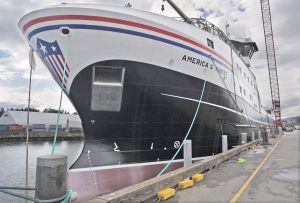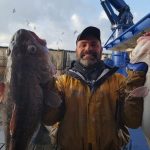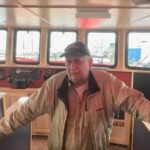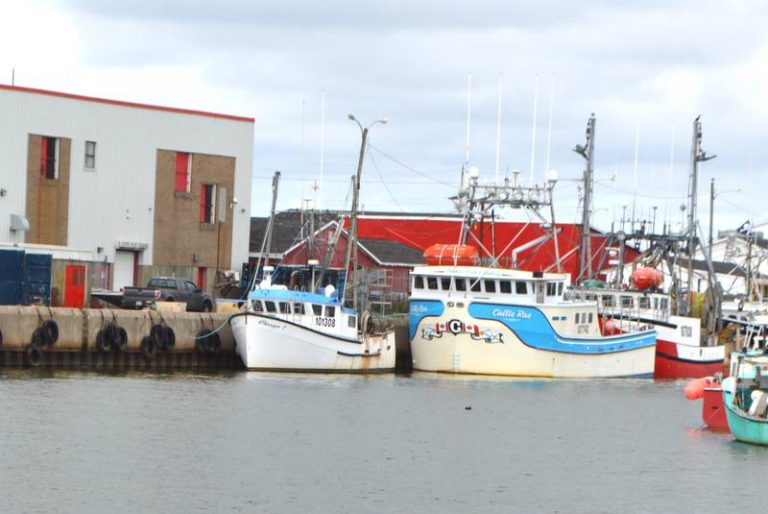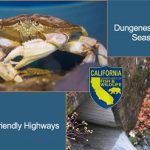Monthly Archives: December 2012
Thanks Alaska delegation for listening to the fishing industry
The North Pacific Fishery Management Council (NPFMC) recently approved a restructured observer program that extends observer coverage to Alaska’s small boat fleet. With the National Marine Fisheries Service (NMFS) taking over observer deployment, the industry-funded restructured program increases the cost of an observer day from the current $400 to approximately $1,000. Read More
Why FDA’s Frankenfish salmon report is fundamentally flawed
Real trouble with Frankenfish
But the FDA’s report approving the salmon misses the point. It misunderstands salmon history. It neglects the complicated nature of the global salmon economy, and it begins by asking fundamentally flawed questions that focus narrowly on the ecological damage that might be caused by breeding and interspecies competition. Read More
2013 WINTER DEMERSAL SHELF ROCKFISH FISHERY ANNOUNCEMENT
Sitka. . . The Alaska Department of Fish and Game (department) announced today that the 2013 directed commercial fishery for Demersal Shelf Rockfish (DSR) will open in the Northern Southeast Inside (NSEI) Subdistrict and portions of the Southern Southeast Inside (SSEI) Subdistrict on Saturday, January 5, at 9:00 am. These areas will remain open until allocations are taken or until 4:00 p.m. on the day prior to the start of the commercial halibut fishery, whichever occurs first. The seven species of rockfish in the DSR assemblage are yelloweye, quillback, canary, copper, china, tiger, and rosethorn. The 2013 annual directed commercial DSR harvest limit for each area is 55,125 round pounds (25 mt) with 37,485 pounds (17 mt) allocated to the winter fishery. The remainder of the harvest objective will be available for harvest in the fall portion of the fishery. Read More
Is opening Georges to Surf Clam/Quahog Dredging Site Mitigation payback for the Proposed Fisherman’s Energy NJ windmills?
Is it just me? Am I the only one that thinks this is a big fat smooch for Daniel Cohen, and his Ocean destroying friends?http://www.zoominfo.com/people/Cohen_Daniel_98479607.aspx
Washington, DC–(ENEWSPF)–December 18, 2012. Beginning this January, fishermen will be able to target abundant stocks of Atlantic surfclams and ocean quahogs on portions of Georges Bank that have been closed to harvesting for 22 years.
Something they are worried about across the pond. Should we be worried? Yes.
Wind farm rush ‘may hit lobster and crab fishing’
Published on Wednesday 26 December 2012 06:00 THE drive for green energy could threaten the future of one of Yorkshire’s most lucrative traditional industries, its leaders have warned. The sea bed off the East Riding coast is described as the “perfect” habitat for crab and lobster and is the biggest fishery of its kind in the UK, netting an annual catch worth millions. But although generations have fished it sustainably for 200 years, fishermen say the industry is facing an unprecedented threat from the development of offshore wind farms, which it is feared will lead to large-scale industrialisation of the sea bed. Read More
Jensen Maritime Awarded for Vision and Innovation in Design of the Northern Leader Fishing Vessel
Jensen Maritime, Crowley Maritime Corp’s Seattle-based naval architecture and marine engineering firm, has been honored with the New Wave Award, which recognizes the company’s vision and innovation for the concept and design of the Northern Leader, a 184-foot long, environmentally-friendly longline fishing vessel owned by Alaskan Leader Fisheries LLC.
The New Wave Award is issued each year by National Fisherman and WorkBoat magazines during Boatyard Day, an event held during Seattle’s Pacific Marine Expo. Boatyard Day celebrates the boatbuilding industry with a series of special events honoring excellence in vessel design, construction and gear for the commercial fishing industry. Read More
Fishermen could use a little extra under the tree – Steve Urbon
I have never seen former New Bedford Mayor John Bullard look so downcast as he did last Thursday at the special meeting of the New England Fisheries Management council in Wakefield. Bullard, who now heads NOAA fisheries in the Northeast, was trying to break the news gently that what the council is about to do with quota allocations wasn’t going to be easy. Someone in the room full of 150 people, mostly fishermen and their families, had asked him to “do the right thing” when it comes to issuing allocations. “Doing the right thing is going to be very, very hard,” Bullard said repeatedly speaking slowly in a low voice. He didn’t get specific, but everyone in the room knew what he meant: This wasn’t going to be pretty. Peter Shelley, senior attorney for the Conservation Law Foundation, made it clear what he and other environmentalist groups were expecting from the council: “You all swore an oath to uphold the Magnuson-Stevens Act,” he reminded them darkly before sitting back down to a chorus of boos and hisses. Shelley apparently didn’t have it in him to acknowledge what the fishermen were telling the council: After following the council’s draconian rules for years in order to rebuild the fishery, they were being repaid by being forced out of business.
Year after year, fishermen are asked to follow rules that boggle the mind and empty the treasury. Any reporter covering fisheries management will tell you it is one of the most impenetrable briar patches of science, politics and bureaucracy that can be imagined. Read More
What’s next? NOAA warns large ships to avoid Olympic Coast National Marine Sanctuary
PORT ANGELES — The National Oceanic and Atmospheric Administration is asking ships of 400 gross tons or greater to stay farther away voluntarily from part of the Olympic Coast National Marine Sanctuary when traveling along the coast to protect the area from possible oil spills. Read More
Gloucester Va. harbor targeted for preservation
Gloucester is “no different than other coastal communities where watermen are forced to move from the coast or are restricted from using traditional access points, causing them to struggle to sustain their ” Lawrence said. “With limited space and limited sites available for mooring their boats, and with limited safe infrastructure where they can conduct business, watermen desperately need new solutions.” Read More
New Jersey’s Congressmen push for fishing industry disaster relief
“New Jersey’s fishing industry is one of the drivers of our regional economy and a staple in coastal communities,” the congressmen wrote. “The fishing industry impacts a wide swath of New Jersey’s economy and includes not only fishermen, but processors, boat builders, bait and tackle shops, marinas, distributors, and tourism thanks to New Jersey’s vast charter boat operations.” Read More
We should pay attention! Fishermen avoid more European quota cuts
BERWICKSHIRE fishermen will not be facing any further cuts to the days they spend at sea or the quota of fish they can catch as they head into a new year. The European Union fishing talks concluded with ministers accepting that there is no justification for further restrictions as part of the cod recovery plan. Borders MP Michael Moore and local MSP John Lamont welcomed the halting of cuts in cod quota and the number of days at sea as good news for Berwickshire fishermen. Berwickshire fishermen have long been challenging EU conservation measures, telling politicians the North Sea is full of fish. Read More
ADF&G in Kodiak NEWS RELEASE
2013 Parallel Groundfish Fishery Registration Reminder Vessel owners and operators are reminded that a State of Alaska vessel registration is required for all vessels fishing during parallel seasons in territorial waters (0-3 nautical miles) of Alaska.. ..Beginning January 1, 2013, the National Marine Fisheries Service will implement a new fisheries observer program for Alaska’s federal commercial groundfish and halibut fisheries. Read More. Don’t get in trouble!
NOAA N.E. chief eyes delay on limits
The New England Fishery Management Council approved the proposal from the Gloucester-based coalition at its special meeting Wednesday in Wakefield. The move came in conjunction with a decision to defer setting catch limits for the groundfishery until the regularly scheduled January meeting – a time frae tha would benefit from a benchmark Gulf of Maine stock assessment and the vetting of it by the council’s Science and Statistical Committee. The coalition wrote last Monday to the council laying out a legal theory derived from an interpretation of the Magnuson-Stevens Act by NOAA last year that became the basis of a one-year interim emergency action on inshore cod that kept the reduction in landings to 22 percent. Read more
Vigil for Captain and Crew Member of Foxy Lady II – goodmorninggloucester (horrible sad)
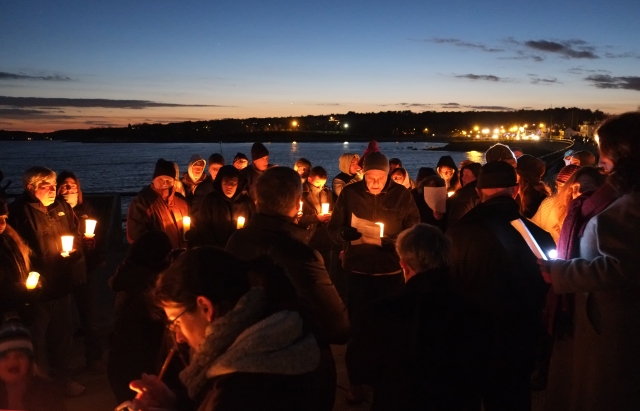 The families of Captain Wally Gray, Jr. and crew member Wayne Young, of F.V. Foxy Lady II along with dozens of friends and supporters from Maine and Gloucester gathered at the Fisherman’s Memorial to pay their respects to the two men who were declared lost at sea this week.(photos by Marty Luster) link
The families of Captain Wally Gray, Jr. and crew member Wayne Young, of F.V. Foxy Lady II along with dozens of friends and supporters from Maine and Gloucester gathered at the Fisherman’s Memorial to pay their respects to the two men who were declared lost at sea this week.(photos by Marty Luster) link
Fishing regulators delay vote on catch cuts
The council voted 15-2 to delay a vote until its next meeting, Jan. 29-31. Proposed allocations for the year starting May 1 have been cut drastically, 75 percent for some species. A Groundfish Committee proposal that would have replaced those cuts with an across-the-board cut of 10 percent of the 2012 landings was declared out of order by council Chairman C. M. “Rip” Cunningham. He said it wouldn’t satisfy the requirements of the Magnuson-Stevens Act that governs fishing and could never be accepted by the National Oceanic and Atmospheric Administration. The proposal had already been sideswiped by Peter Shelley, senior counsel for the Conservation Law Foundation, for the same reason. He threatened a lawsuit, drawing boos from the packed hall where about 150 New England fishermen faced down the council. About 20 people from Greater New Bedford were among those in attendance.
Much of Thursday’s meeting dealt with the flawed science used to make quota decisions, especially the data collected by the research vessel Bigelow. Seafood consultant Jim Kendall, of New Bedford, along with council member John Quinn, of Dartmouth, ridiculed NOAA for making decisions with nothing but poor science, speculation and guesswork.
The Bigelow’s data on yellowtail flounder has resulted in a dramatic cut in quota for next year, which could well shut down the Gulf of Maine fishery. But the fishermen insisted the Bigelow was taking test trawls in places where they knew there would be no fish and avoided the places where there were fish.
The council did adopt a motion to allow fishing in some areas that have been closed to groundfishing for 22 years. This angered the environmental representatives, both Shelley and Oceana’s Gib Brogan. Read More
Invasive seaweed spreads along New England coast
 As it continues to proliferate, Heterosiphonia japonica can create problems for Maine lobstermen as it has for lobstermen in Massachusetts. Last spring, the plant clung to the sides of Skip Ryan’s gear and clogged his traps to the point where he was forced to move his traps from inner Boston Harbor into deeper waters, where the seaweed wasn’t so bad. When Ryan reached inside the traps to remove the seaweed, it would break apart in his fingers, creating a nasty mess. Some of his traps became so weighted down with the stuff that it was hard for him to pull them aboard. “It gets all over the ground line, it’s all over the wheelhouse of the boat, it’s all over the pot hauler,” he said. “The stuff is horrendous.” Some are concerned the seaweed could squeeze out native varieties and smother sea grass beds, which serve as important nursery grounds for fish, lobsters and other marine species. Read More
As it continues to proliferate, Heterosiphonia japonica can create problems for Maine lobstermen as it has for lobstermen in Massachusetts. Last spring, the plant clung to the sides of Skip Ryan’s gear and clogged his traps to the point where he was forced to move his traps from inner Boston Harbor into deeper waters, where the seaweed wasn’t so bad. When Ryan reached inside the traps to remove the seaweed, it would break apart in his fingers, creating a nasty mess. Some of his traps became so weighted down with the stuff that it was hard for him to pull them aboard. “It gets all over the ground line, it’s all over the wheelhouse of the boat, it’s all over the pot hauler,” he said. “The stuff is horrendous.” Some are concerned the seaweed could squeeze out native varieties and smother sea grass beds, which serve as important nursery grounds for fish, lobsters and other marine species. Read MoreRhode Island Fishermen’s Alliance Weekly Update December 23, 2012
 “The Rhode Island Fishermen’s Alliance is dedicated to its mission of continuing to help create sustainable fisheries without putting licensed fishermen out of business.” Read More
“The Rhode Island Fishermen’s Alliance is dedicated to its mission of continuing to help create sustainable fisheries without putting licensed fishermen out of business.” Read More
Judge OKs Settlement In BP Class-Action Suit – $2.3 billion to cover seafood-related claims by commercial fishing vessel owners, captains and deckhands.
 BP will pay $2.3 billion to cover seafood-related claims by commercial fishing vessel owners, captains and deckhands. That fund is the settlement’s only limit, Barbier wrote. He said that it is about five times the average industry gross revenue from 2007 to 2009 and, according to evidence provided, more than 19 times the revenue the industry lost in 2010. Still unresolved are environmental damage claims brought by the federal government and Gulf Coast states against BP and its partners on the Deepwater Horizon drilling rig, and claims against Switzerland-based rig owner Transocean Ltd., and Houston-based cement contractor Halliburton. Read More
BP will pay $2.3 billion to cover seafood-related claims by commercial fishing vessel owners, captains and deckhands. That fund is the settlement’s only limit, Barbier wrote. He said that it is about five times the average industry gross revenue from 2007 to 2009 and, according to evidence provided, more than 19 times the revenue the industry lost in 2010. Still unresolved are environmental damage claims brought by the federal government and Gulf Coast states against BP and its partners on the Deepwater Horizon drilling rig, and claims against Switzerland-based rig owner Transocean Ltd., and Houston-based cement contractor Halliburton. Read More
Expert: Fishing gear likely killed whale – 30-foot dead whale washed up on Flagler Beach on Wednesday
McLellan said the fishing industry is a partner in trying to reduce the number of animals caught in their gear, and they’re working to try to do that by making fishing gear more visible to whales and strong enough to catch fish, but breakable if, say, a 30,000-pound whale gets caught in it. “Strategic parts of the gear have to be able to break and allow that gear to be released off the animal so the animal can swim away and continue on its normal course of what it wants to do in a day,” McLellan said. Read More
Alaska Delegation Fillets GM Salmon Report – Begich said. “I will fight tooth and nail,,,,,,,”
 ANCHORAGE, Alaska — Alaska’s congressional delegation was united in its opposition Friday to a draft report from the federal Food and Drug Administration saying that the nation’s health and environment wouldn’t be significantly harmed by genetically modified salmon. The fish, introduced by Massachusetts biotechnology firm AquaBounty, are engineered to grow much larger than wild salmon — but many Alaskans see them as a threat to both the market for and the existence of wild fish. Read More
ANCHORAGE, Alaska — Alaska’s congressional delegation was united in its opposition Friday to a draft report from the federal Food and Drug Administration saying that the nation’s health and environment wouldn’t be significantly harmed by genetically modified salmon. The fish, introduced by Massachusetts biotechnology firm AquaBounty, are engineered to grow much larger than wild salmon — but many Alaskans see them as a threat to both the market for and the existence of wild fish. Read More
Alaska – Better alternatives to fisheries observer program story – dwarfed by the public comment!
The North Pacific Fishery Management Council (NPFMC) recently approved a restructured observer program that extends observer coverage to Alaska’s small boat fleet. With the National Marine Fisheries Service (NMFS) taking over observer deployment, the industry-funded restructured program increases the cost of an observer day from the current $400 to approximately $1,000.
The Great King Salmon Mystery – You may be wondering why you failed to that king salmon this year? Some are calling it a king salmon crisis but few if any will attempt to answer the mysterious question as to where all of our king salmon have gone to. It’s not a salmon crisis when your neighbor fails to catch a king, it’s a crisis when you fail to catch one. If you ask the Alaska Department of Fish & Game, they will claim that our freshwater rivers and streams are producing plenty of baby king salmon. The mystery…. Read More
One Man’s Fight – Chris McCaffity – a commercial snapper/grouper fisherman
I had the pleasure of meeting Chris online today, and it turned into a long telephone conversation discussing fishery issues that neither one of us knew much about because of the different regions we are familiar with, he South East, I north East. I am impressed with his methodology and tenacity, as he finds himself in the same boat as many fishermen find themselves. Endangered!
I will not bore you with a long drawn out synopsis of our conversation, what I will do, however, is give you the link to his website. This is the cornerstone that he has built from to engage government official”s, ENGO’s, and his fellow citizen’s and fishermen. Visit freefish7.com, and get to know this fisherman from North Carolina. OH! Buy a calender from him. He fights for you, too!
FLORIDA KEYS – Stone Crab Prices Putting The Pinch On Wallets – many Florida Keys commercial fishermen are struggling
 FLORIDA KEYS (CBSMiami) – Just two months into stone crab season, many Florida Keys commercial fisherman are struggling or even giving up, despite skyhigh prices for stone-crab claws. Read More
FLORIDA KEYS (CBSMiami) – Just two months into stone crab season, many Florida Keys commercial fisherman are struggling or even giving up, despite skyhigh prices for stone-crab claws. Read More
San Francisco, Calif – Commercial Dungeness Crab Season Delayed Once More
SAN FRANCISCO, Calif.- Commercial dungeness crab season in northern California was delayed once more, right before the busy Christmas holiday. Read More
Texas Parks and Wildlife Department (TPWD)-possible regulation changes-Statewide Recreational and Commercial Fishing Proclamation
AUSTIN – The Texas Parks and Wildlife Department (TPWD) has scheduled three public scoping meetings in January to gather input about possible regulation changes for 2013-14. The scoping items include incorporation of a rule regarding recreational possession limit, clarification of fish harassment rules, bonus red drum tag requirement changes and new possession rules in state waters for aquatic resources in excess of federal limits. Read More
Tell Your Members of Congress: Stop the Approval of GE Salmon – Food & Water Watch
This holiday season, the FDA has disregarded the concerns of hundreds of thousands of consumers around the country by moving forward with the approval of genetically engineered salmon. This frankenfish would become the first genetically engineered meat to hit the market, potentially opening up the floodgates for more GE food animal to come. And, to add insult to injury, the GE salmon may not even be labeled, preventing consumers from making informed decisions about their food..The best way we can fight the FDA’s abuse of its approval power is by asking our legislators to keep GE salmon out of our grocery stores. Join us in sending an email to your members of Congress today asking them to block the approval of GE salmon. Read More



































